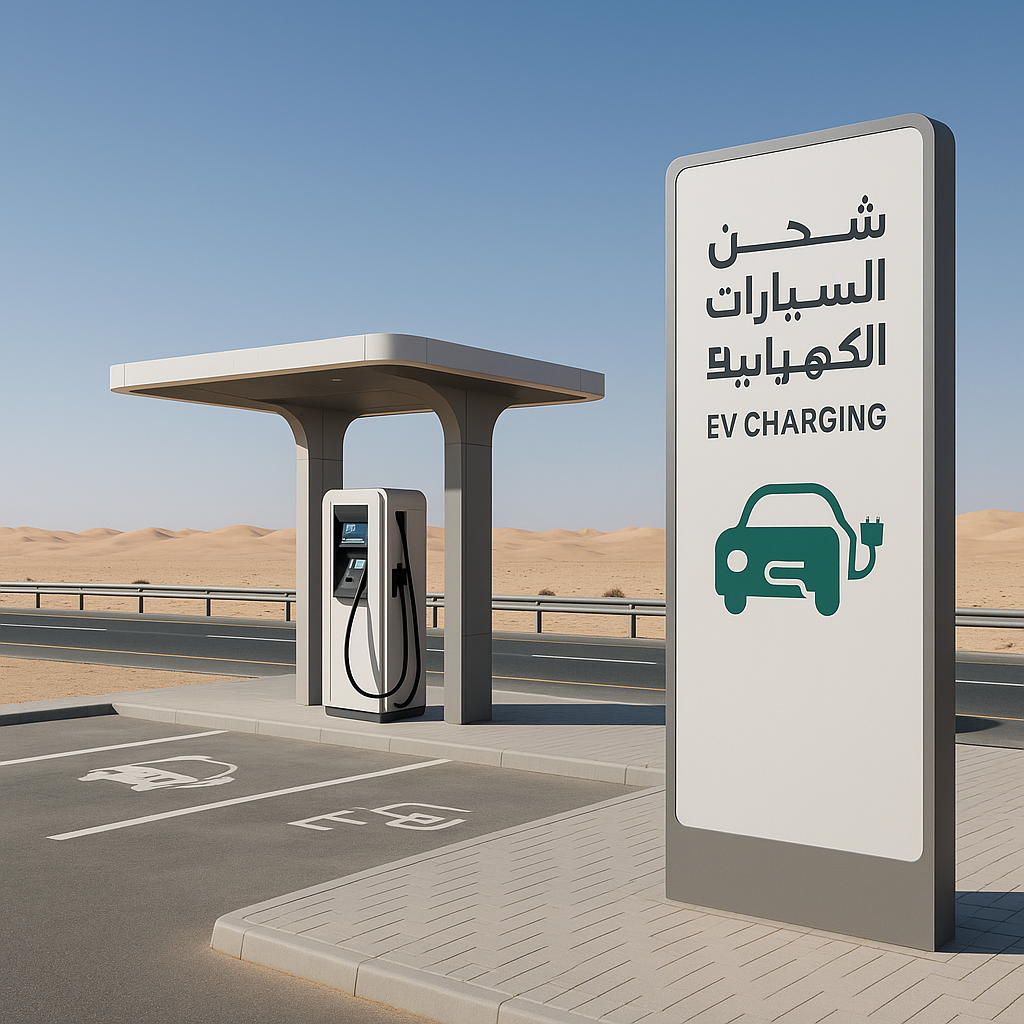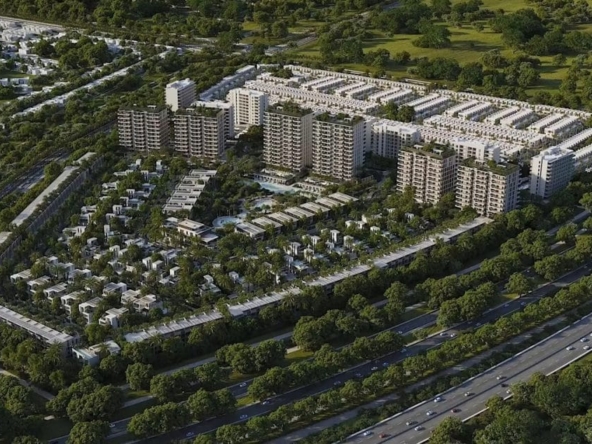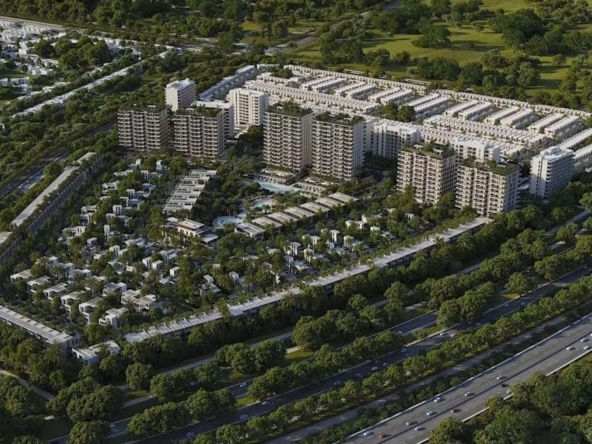The United Arab Emirates (UAE) is rapidly transforming its transportation sector with the launch of a nationwide electric vehicle (EV) charging network. This bold move signifies a critical leap toward sustainable mobility, aligning with the UAE’s Net Zero 2050 initiative and its broader goals to diversify the energy mix and reduce reliance on fossil fuels.
The rollout of this National EV Charging Network (NEVCN) reflects the country’s dedication to climate-conscious innovation and positions the UAE as a global frontrunner in the clean transport revolution.
Strategic Objectives Behind the EV Charging Network
Driving the Green Economy Forward
The national EV charging project supports the UAE’s strategy to lead the region in green infrastructure development. Key objectives include:
-
Reducing greenhouse gas emissions by transitioning away from internal combustion engines
-
Supporting the widespread adoption of electric vehicles
-
Strengthening public-private partnerships in green energy solutions
-
Stimulating investment in smart mobility infrastructure
Alignment with National Sustainability Goals
This initiative is directly aligned with:
-
UAE Vision 2030
-
Dubai Clean Energy Strategy 2050
-
Abu Dhabi Environment Vision 2030
By implementing a vast and efficient EV charging network, the UAE is enabling its cities to meet international environmental standards and encouraging residents and businesses to switch to zero-emission transportation.
Coverage and Technical Specifications of the Network
National Scale Deployment
The NEVCN will span across all seven emirates, strategically placing charging stations in:
-
Urban centers
-
Highways
-
Commercial zones
-
Residential communities
-
Tourist destinations
This ensures uninterrupted EV travel across the UAE and integrates seamlessly with smart city initiatives.
Types of EV Charging Stations
The network includes multiple charging options to cater to various EV models:
-
Level 2 AC Chargers – For homes, offices, and shopping centers
-
DC Fast Chargers – Located at highways and busy city zones for rapid top-ups
-
Ultra-fast Chargers (350 kW) – For next-generation EVs and fleet operations
Each station is equipped with advanced connectivity, real-time usage data, and cashless payment systems.
Partnerships and Stakeholders in the EV Ecosystem
Government and Utility Sector Leadership
The project is spearheaded by the Ministry of Energy and Infrastructure, in collaboration with:
-
Dubai Electricity and Water Authority (DEWA)
-
Abu Dhabi Department of Energy
-
Etihad Water and Electricity
-
Sharjah Electricity, Water and Gas Authority (SEWA)
These agencies are working together to standardize charging protocols, ensure grid readiness, and promote smart energy distribution.
Private Sector Participation
Key private companies in the mobility and energy sectors are also involved, including:
-
Tesla
-
ABB
-
Siemens
-
ION Mobility
-
GreenParking
Their expertise in hardware manufacturing, cloud platforms, and charging network management ensures the reliability and scalability of the project.
Smart Features and User Experience
App Integration and Navigation Tools
Drivers can use a unified EV charging app that offers:
-
Real-time charger availability
-
Route optimization
-
Pre-booking of charging slots
-
Digital payments and subscription options
-
Charging history and carbon savings metrics
This enhances convenience and fosters EV adoption through ease of use and transparency.
Interoperability and Compatibility
The UAE’s charging network is being built with interoperability standards that ensure:
-
Cross-brand charger access
-
Compatibility with all leading EV models
-
Integration with GCC and global EV charging standards
This future-proofs the infrastructure and opens doors for regional EV corridors.
Environmental and Economic Impacts
Reduction in Carbon Emissions
According to official estimates, the EV charging network will support a target of:
-
40% reduction in transport-related carbon emissions by 2040
-
Cutting millions of tonnes of CO₂ emissions annually
-
Facilitating cleaner air and healthier urban environments
Job Creation and Investment Opportunities
The development and maintenance of EV infrastructure will:
-
Create thousands of green jobs in engineering, IT, and energy
-
Attract foreign direct investment in the cleantech sector
-
Stimulate innovation in battery storage, AI-driven grid management, and renewable energy
EV Adoption Incentives Across the UAE
To complement the charging network, authorities have introduced:
-
Free EV parking in designated zones
-
Green vehicle number plates
-
Zero customs duties on imported EVs
-
Free toll access for EVs in select emirates
-
EV loans and insurance discounts through partnering banks and insurers
These perks provide both financial and lifestyle advantages, accelerating the transition.
Challenges and Forward Strategy
Managing Grid Demand
With growing EV usage, the UAE is:
-
Upgrading the national grid to handle fluctuating load
-
Investing in battery storage systems
-
Enhancing renewable energy integration to ensure that EVs are charged with clean power
Education and Behavioral Change
Public awareness campaigns and educational initiatives are being rolled out to:
-
Dispel myths about EV range and cost
-
Promote eco-conscious driving habits
-
Encourage early adoption among businesses and fleet operators
Outlook: UAE as a Global Benchmark for Sustainable Transport
With this initiative, the UAE is setting a precedent in the region—and globally—for how an energy-rich nation can pivot to sustainability. By fusing digital innovation, policy alignment, and green infrastructure, the country is building a transport system that is:
-
Sustainable
-
Resilient
-
Future-ready
The national EV charging network will be a pillar in the UAE’s broader plan to become a climate-neutral, innovation-driven economy.




